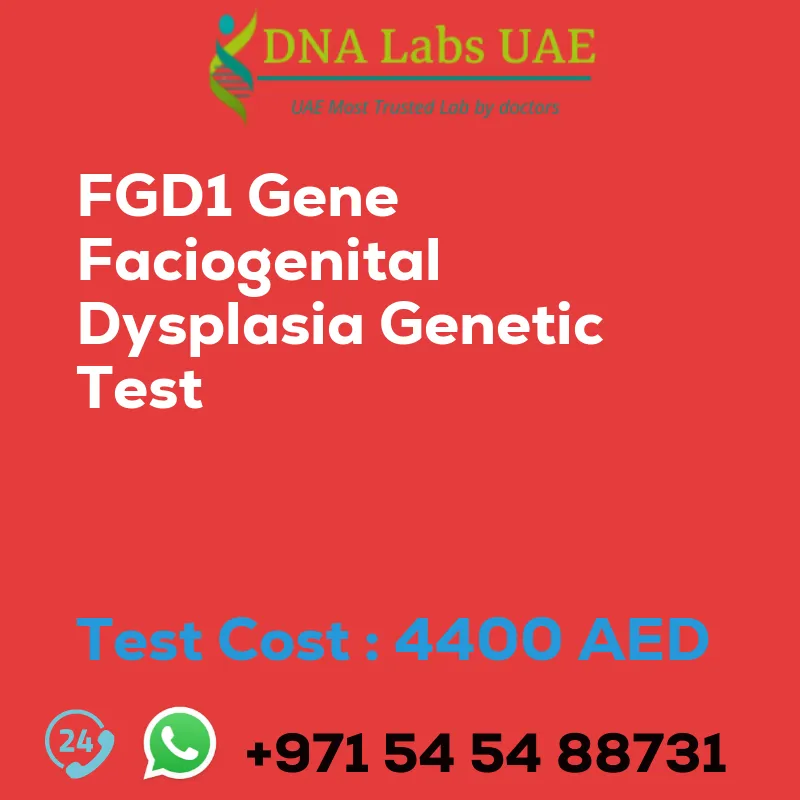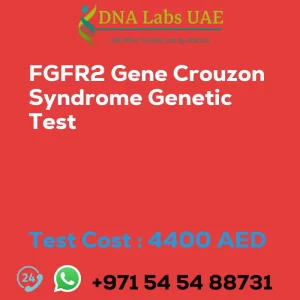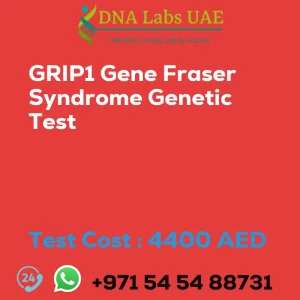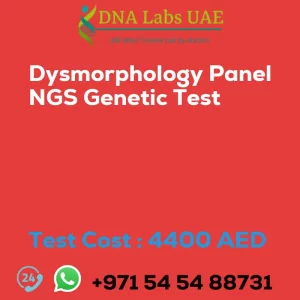FGD1 Gene Faciogenital dysplasia Genetic Test
Cost: AED 4400.0
Test Components:
- FGD1 Gene Faciogenital dysplasia Genetic Test
Sample Condition:
Blood or Extracted DNA or One drop Blood on FTA Card
Report Delivery:
3 to 4 Weeks
Method:
NGS Technology
Test Type:
Dysmorphology
Doctor:
Pediatrics
Test Department:
Genetics
Pre Test Information:
Clinical History of Patient who is going for FGD1 Gene Faciogenital dysplasia NGS Genetic DNA Test. A Genetic Counselling session to draw a pedigree chart of family members affected with FGD1 Gene Faciogenital dysplasia NGS Genetic DNA Test gene FGD1
Test Details:
The FGD1 gene, also known as faciogenital dysplasia 1 gene, is associated with a condition called faciogenital dysplasia (FGD). FGD is a rare genetic disorder that primarily affects the development of the face and external genitalia. NGS, or next-generation sequencing, is a genetic testing method that allows for the rapid and efficient sequencing of large amounts of DNA. NGS can be used to analyze the FGD1 gene to identify any genetic variants or mutations that may be present.
Genetic testing for FGD1 gene mutations can be helpful in diagnosing individuals with faciogenital dysplasia. It can also be used for carrier testing in individuals with a family history of the condition, as FGD is inherited in an autosomal recessive manner. By identifying specific genetic variants or mutations in the FGD1 gene, NGS genetic testing can provide valuable information for genetic counseling, family planning, and potential treatment options for individuals affected by faciogenital dysplasia.
| Test Name | FGD1 Gene Faciogenital dysplasia Genetic Test |
|---|---|
| Components | |
| Price | 4400.0 AED |
| Sample Condition | Blood or Extracted DNA or One drop Blood on FTA Card |
| Report Delivery | 3 to 4 Weeks |
| Method | NGS Technology |
| Test type | Dysmorphology |
| Doctor | Pediatrics |
| Test Department: | Genetics |
| Pre Test Information | Clinical History of Patient who is going for FGD1 Gene Faciogenital dysplasia NGS Genetic DNA Test. A Genetic Counselling session to draw a pedigree chart of family members affected with FGD1 Gene Faciogenital dysplasia NGS Genetic DNA Test gene FGD1 |
| Test Details |
FGD1 gene, also known as faciogenital dysplasia 1 gene, is a gene that is associated with a condition called faciogenital dysplasia (FGD). FGD is a rare genetic disorder that primarily affects the development of the face and external genitalia. NGS, or next-generation sequencing, is a genetic testing method that allows for the rapid and efficient sequencing of large amounts of DNA. NGS can be used to analyze the FGD1 gene to identify any genetic variants or mutations that may be present. Genetic testing for FGD1 gene mutations can be helpful in diagnosing individuals with faciogenital dysplasia. It can also be used for carrier testing in individuals with a family history of the condition, as FGD is inherited in an autosomal recessive manner. By identifying specific genetic variants or mutations in the FGD1 gene, NGS genetic testing can provide valuable information for genetic counseling, family planning, and potential treatment options for individuals affected by faciogenital dysplasia. |








